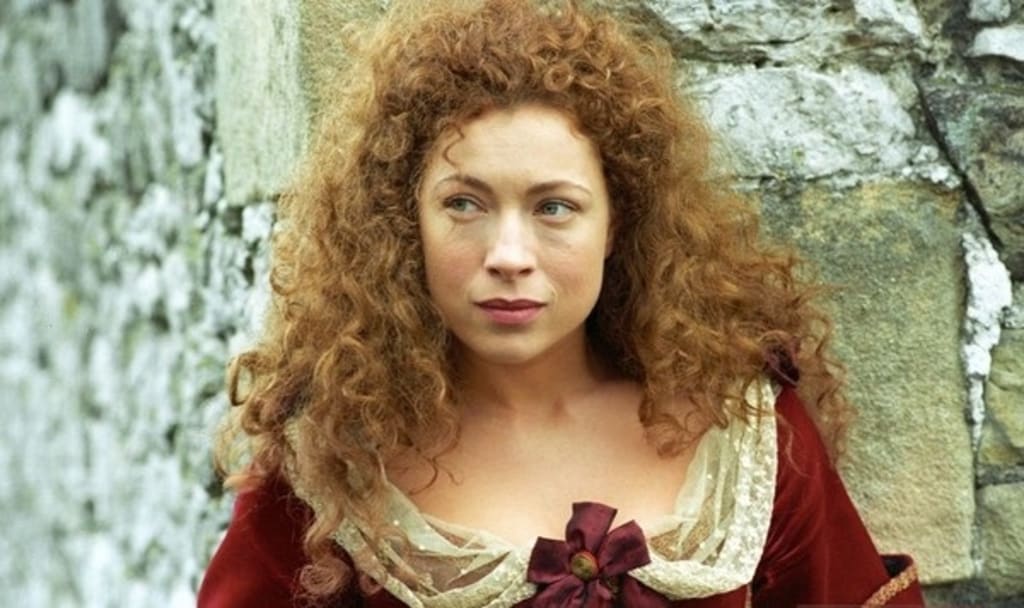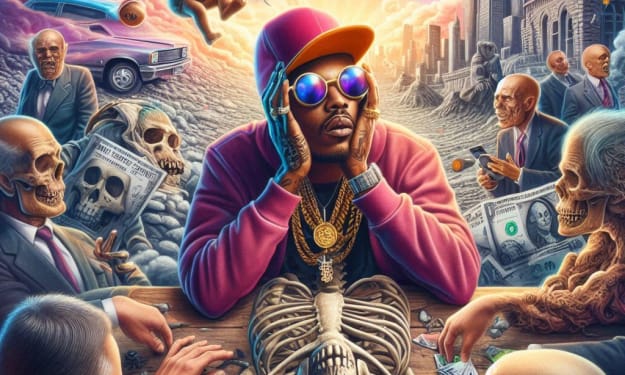Moll Flanders (1996)
Based on the Infamous Novel by Daniel Defoe

The incredible Alex Kingston stars in the BBC adaptation of Moll Flanders, the seminal, early novel by Defoe of a woman and her turbulent existence in 1693 England; being born at Newgate Prison, reared by the Mayor of Colchester, a wife, unknowingly to her brother, and just escaping the gallows to travel to the slave-shackled shores of colonial Virginia, wherein the story returns full circle. In the interim, Moll proves herself a fighter, a survivor of the class struggle as much as an adventuress and hopeful upwardly-mobile swimmer in it, and reveals both the hypocrisy of the male-dominated world of sex and money, as well as the flatulent outpourings of the Church-dominated society that will hang a child for stealing a handkerchief but allow gentlemen to carouse and womanize to their pleasure.
Beginning with a tour of the hellish dungeons at Newgate, Moll's history is recounted by the tour guide for the viewer as well as the petty aristocrats and bourgeois who seem to think that the shuddering horrors held in the dungeon within are a form of ghastly, semi-freakshow entertainment (indeed, the tour guide, played by James Bowers, puts one in mind of a Victorian carnival barker). Inside, we find Moll, just short of her execution, a bitter, cynical woman held in irons, filthy, and addressing the television audience directly. "Well," seems to be her eternal refrain. "What would YOU do?"
(As in: "If you were confronted by the situations and circumstances I have been,would you act any differently, oh thou beggarly collection of puritanical knaves?" But I digress.)
Moll's mother, a Newgate thief, and whore, is saved by "pleading her belly"; by which I mean, she contested her execution by protesting that, as a pregnant woman, they couldn't hang her. She was legally right and allowed to immigrate to Virginia, instead. Keep that in mind.
Moll, however, is taken from her, and given, first to gypsies (from which she runs away), and then ends up being reared in the home of the Mayor of Colchester, who by no means could see a small child turned out into the street (the town council was planning this since she was not a resident), and cares for her until her eighteenth year when first her handsome brother Rowland (Colin Buchanan) seduces her, and then her much-less-appealing brother Robin (Ian Driver) demands she marry him. Much to the ire of his parents.
The sisters of these two make plain their feelings as well. Moll, observes one, maybe the "most handsome woman in Colchester," but, "without money, she's nothing." Thus Moll, who "never knew quite where I stood in that house," gets a taste of the whip hand of the bourgeoisie, who, despite having raised her as "one of their own,' will never quite accept her because of her underclass antecedents.
Moll marries the seriously unsexy Robin and tolerates the marriage for "five dreary years." He dies (why it is never specified), and Moll quickly leaves home and hearth for London, an adventuress, and fortune hunter through and through, a proponent of the capitalist class structure as much as a victim of it.
She marries again, a man with no solid money sense who flees to France, one step ahead of his creditors. Broke, Moll renames herself Flanders, weds a ship's captain in Kent, and travels to Virginia, where he and Momma, Mrs. Golightly (Diana Rigg), own a plantation with indentured servants and black slaves. The central plot point here is that Moll learns from Mrs. Golightly herself, that she is her mother, and that, in point of fact, Moll has unwittingly married and fathered children by her OWN HALF-BROTHER.
She quickly cools to him in the most severe way, leaving him an angry wretch, but once the truth is revealed to him by Golightly, Moll is sent packing back to England, losing her possessions along the way.
It is while back in London she meets Jemmie (Daniel Craig), the love of her life, embarking on a romance that is actually inspired by love, instead of greed or a desire to be a "gentlewoman." It turns out that Jemmie is just as much an adventurer as she and his imaginary Irish fortune he's to come into is bollocks. He flies into a rage when he finds out Moll herself does not have ten thousand pounds in the Bank of England and threatens to kill his female partner. He departs, leaving Moll in the lurch with husband number four.
The rest of Moll Flanders sees her gradual descent into crime and human callousness, going so far as to rob a necklace from an unsuspecting child, then seriously contemplating strangling her to keep her quiet. She tries to justify her actions to US, the audience, looking directly at the camera and saying, "Well, it will teach her a lesson! What was she doing out so late by herself, anyway? OH, stop looking at me like that!" Not exact quotes, but one gets the sense that self-justification and anger at her social status have forced her into the position of being something she would ordinarily detest--a common thief, a woman of violence and deception. But if she is this, we must ask ourselves: why? Isn't it due to the abandonment and exploitation of the poor, women, and the so-named "dregs" of society, by the bourgeois and upper class, by the conventional, hypocritical morality of the patriarchal Christian society she is thrust into to be a part of, and just as quickly thrust from, because of the station of her birth, her sex? Moll does what she does out of a desire to survive; but, by doing so, she is forced further and further down the sliding precipice toward psychopathy and her own personal destruction. She becomes an unfeeling psychological disaster, one who angrily invokes the mercy of God, while alternately condemning and chastising him for the inscrutable and often unjust way he metes out destiny and fortune.
Moll begins a lesbian affair with the redoubtable "Lucy Diver", (Nicola Walker) a charming cockney pickpocket, and the both of them share their criminal earnings with the landlady. Lucy is captured and hung in a sickening scene, but not before defiantly saying to the crowd gathered to watch her hanging, "I've had a short life, but a jolly one. I was the best dip in London. If God don't like me, I don't like him, and don't want to go to Heaven anyway." These tragic lives are played out for the viewer to be exposed to the feelings and thoughts of those that live and die outside of the conventional norms--but these people, these unfortunate women, were victims of the hypocrisy of their age.
We won't give away the ending, except to say that, eventually, everything comes around full circle. Moll Flanders is such an engaging film, you'll want to watch it repeatedly, despite its length. It reveals the horrors of an age when social injustice was taken for granted; when your "lot in life" was something preordained mysteriously by God, and sex and class solidified your place in the world; your value, your importance. It begs the question (As Moll herself often asks the viewer): "Well, what would YOU do?" Indeed, what would you do under similar, impossible circumstances, if you were relegated to the bottom of the social strata by dint of your class or race? Is Moll immoral? Or is she just struggling to survive in a world she didn't make, but whose rules and values she is forced to abide by, whether they cast her into the gutter, prison, or hold her on a pedestal as a "gentlewoman."
A world not very different from our own. After all, when faced with HER circumstances: What would YOU do?
MOLL FLANDERS PART 1
MOLL FLANDERS PART 2
About the Creator
Tom Baker
Author of Haunted Indianapolis, Indiana Ghost Folklore, Midwest Maniacs, Midwest UFOs and Beyond, Scary Urban Legends, 50 Famous Fables and Folk Tales, and Notorious Crimes of the Upper Midwest.: http://tombakerbooks.weebly.com
Enjoyed the story? Support the Creator.
Subscribe for free to receive all their stories in your feed. You could also pledge your support or give them a one-off tip, letting them know you appreciate their work.
Reader insights
Nice work
Very well written. Keep up the good work!
Top insights
Expert insights and opinions
Arguments were carefully researched and presented
On-point and relevant
Writing reflected the title & theme






Comments (1)
Excellent review and thanks for including the YouTube links. This is excellent.